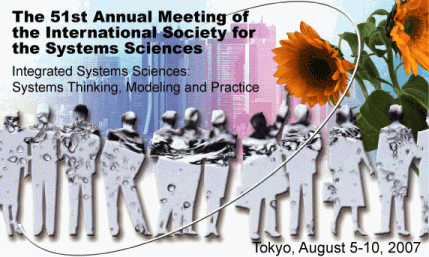Changes and Societal Development through Co-Design in the Information Society
Keywords:
knowledge, social constructivism, co-design, learning, action, activityAbstract
Papernumber: Changes and Societal Development through Co-Design in the Information Society Bertil Lind University College Borås, Sweden bertil.lind@hb.se Information and knowledge are available all around us as never before. At the same time we experience changes – changes that have a great impact on the whole society, companies and institutions as well as on individual human beings. But changes is nothing new. Already Herakleitos told us panta rei – everthing is floating. The changes today is occur however more rapidly than before. Looking at changes from the perspective of an individual human being it is possible to identify two different kinds of changes: internal changes that affects the internal human being and external changes that has an impact on the surrounding world. Internal changes occur when an individual somehow gain new knowledge (learning) and depending on the perspective on knowledge learning occurs in different ways. From a cognitive perspective the person constructs knowledge on his or her own from impressions from the environment. The social constructivist perspective instead views learning as a result from interaction between people. A person learns by taking part in a social action together with other people and by doing so he can perform tasks that he would not be able to do on his own. Apart from internal change there is also external change and such changes occurs through actions performed by people. But what causes actions? Can internal changes cause actions that will also influence the world? This question is discussed further in the paper. But interaction between people has a further dimension than individual learning. According to Churchman, interaction between people means that different perspectives meet and the more perspectives that we can identify, the better understanding we will get. This idea leads into co-design, where one perspective is that people meet to create something together. Co-design thus take advantage of the fact that several perspectives are present at the same time. The social constructivist perspective does not fully consider the power of co-design. Though the main focus is the social action, the theory still has an individual perspective. Yrjö Engeström has however enhanced Vygotsky’s ideas in his activity theory where he sees production as the ultimate goal of human activity. He also stresses that though individual learning through social interaction will mean much for the development of the individual learner, it will not contribute to the development of the society. The knowledge that the person gains is already available in the society. Therefor societal development requires new activities created through co-design. This paper aims at clarifying the relationship between knowledge, internal change, action, activity and societal development. Some models of cybernetic loops illustrating these relationships are presented. Keywords: knowledge, social constructivism, co-design, learning, action, activityPublished
2007-07-31
How to Cite
Lind, B. (2007). Changes and Societal Development through Co-Design in the Information Society. Proceedings of the 51st Annual Meeting of the ISSS - 2007, Tokyo, Japan, 51(2). Retrieved from https://journals.isss.org/index.php/proceedings51st/article/view/510
Issue
Section
Information Systems Design and Information Technology

